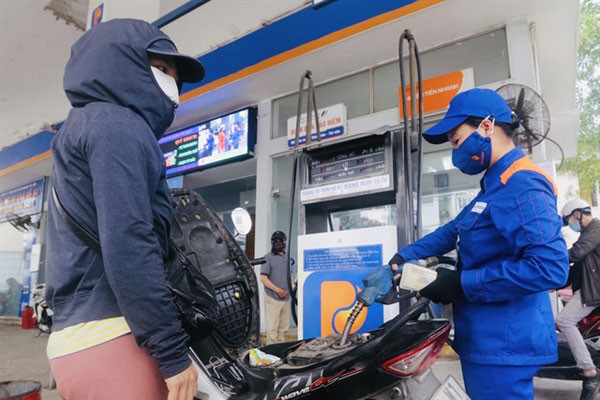
The point was made in the draft of the amended Law on Price which Minister of Finance Ho Duc Phoc presented to the National Assembly on Wednesday afternoon.
Phoc said that the fund had been used consistently and proved to be effective in controlling inflation, stabilising the macro-economy, maintaining growth and ensuring social security.
Amid petrol price volatility, the fund was necessary, Phoc said, adding that the Government agreed to maintain the operation of the fund and at the same time, strengthen the mechanisms in implementation to ensure transparency.
In response, Chairman of the NA Finance and Budget Committee Nguyen Phu Cuong said that careful consideration must be given to the operation of the petrol price stabilisation fund.
Cuong said some agreed that the fund should just be operated at certain times for a specific duration. The management of the fund required more flexibility, efficiency, timeliness, and transparency.
Meanwhile, some said that the fund would be terminated to let domestic petrol prices be more market-based.
Under the draft law, 40 categories of products and services were subject to State management on prices, with textbooks newly added.
Cuong said that prices of textbooks had a wide impact, especially on low-income earners, thus, it was necessary to manage textbook prices to prevent negative effects.
Enhance rights of consumers in the digital economy
National Assembly members agreed on Wednesday morning that issuing the amended laws on the protection of consumer rights and electronic transactions is essential to better protect the rights of consumers in the rapidly changing digital economy.
Deputy Trinh Lam Sinh from An Giang Province said that the Law on Protection of Consumer Rights 2010 proved to be outdated after 12 years.
He pointed out that Vietnam was one of the leading countries in e-commerce development and there were a number of problems related to consumer rights in e-commerce transactions.
The amendments were needed to ensure regulations keep pace with market developments, he said.
Deputy Do Duc Hong Ha from Hanoi said that the definition of consumers and consumer rights must be clarified to ensure feasibility, adding that consumers in the traditional form were different from those on digital platforms and online.
Deputy Ta Dinh Thi also from Hanoi delegation said that sanctions must be strong enough to better protect the rights of consumers. The security of consumer information must also be enhanced.
The responsibilities of producers and distributors who sold counterfeit goods and poor-quality goods must be clarified, deputy Truong Xuan Cừ from the Hanoi said, adding that the punishments remained too light.
Cừ also said that consumers, especially the elderly and the marginalised, should have the right to be provided with consultancy.
Deputy Nguyen Thi Ngoc Xuan from Binh Duong Province said that the regulations on international cooperation in the protection of consumer rights must be more detailed in the context that cross-border trade was becoming much easier with the growing popularity of e-commerce.
In response, Minister of Industry and Trade Nguyen Hong Dien said that the draft focused on enhancing the protection of consumer rights in transactions involving digital transformation and in cyberspace.
Specifically, the draft regulated the responsibilities of business organisations and individuals in remote transactions with consumers, remote contracts and what business organisations and individuals operating in digital platforms were banned from.
He added that the draft also encouraged the operation of social organisations in the protection of consumer rights.
Discussing the Law on Electronic Transactions, NA members agreed that there was a lack of a specific provision on legal validity and reliability for a number of factors in electronic transactions such as electronic signatures and accounts for electronic transactions as well as the legal value of electronic forms.
The amended Law on Electronic Transactions to replace the one that existed from 2005 was essential to keep pace with the development of the Fourth Industrial Revolution, Minister of Information and Communications Nguyen Manh Hung said.
He said that regulations on electronic transactions and transactions on digital platforms played an important role in the development of the digital economy.
Deputy Do Duc Duy from Yen Bai Province said that it was necessary to raise solutions to ensure security for enterprises and residents in electronic transactions, especially banking transactions and cross-border online transactions.
Source: Vietnam News